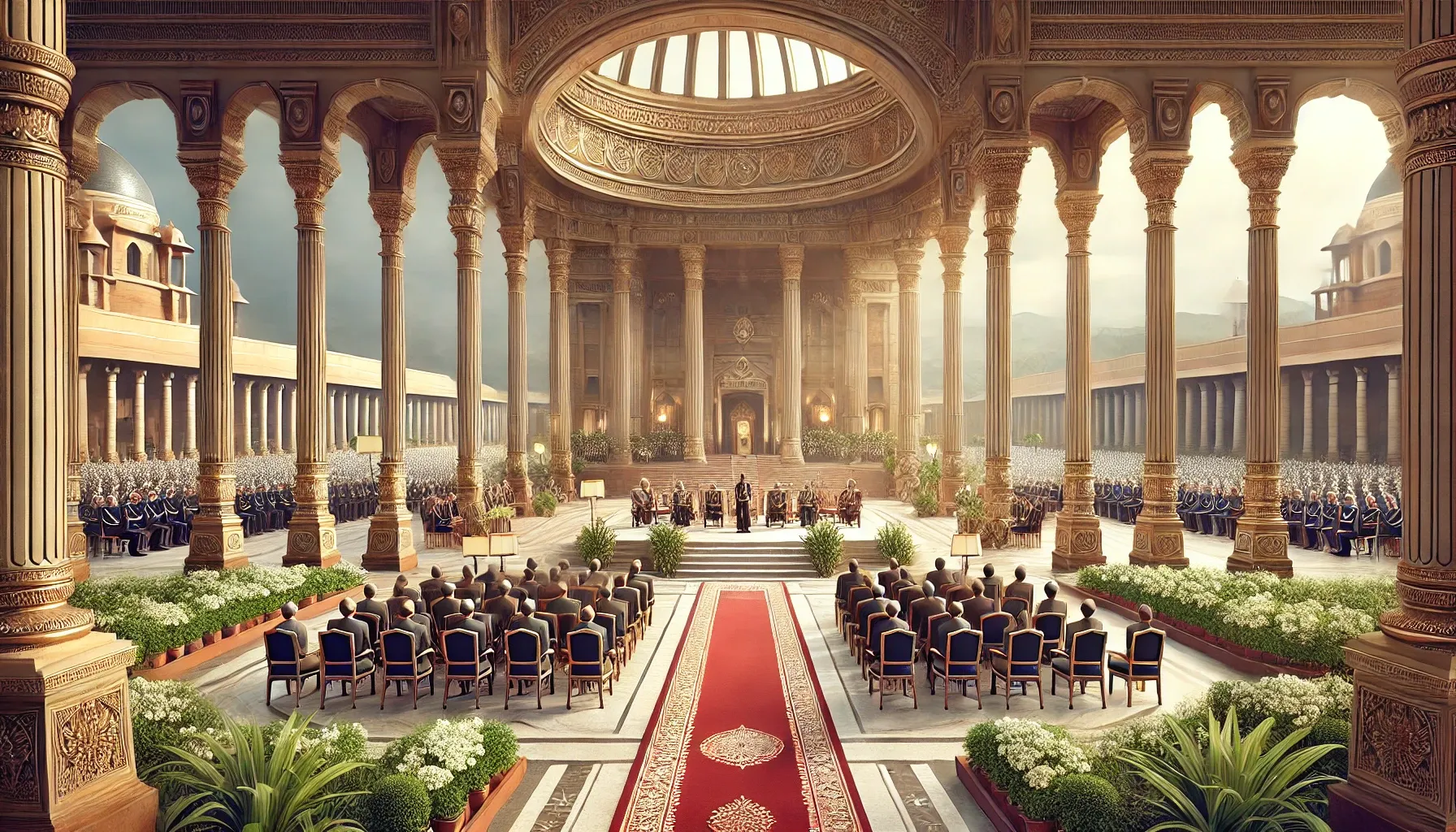Chief Justice Sanjiv Khanna, sworn in as the 51st CJI, pledges to reduce case backlogs, simplify judgments, and enhance mediation. Emphasizing accessible justice, he aims for efficient trials and citizen-focused reforms.

Newly appointed Chief Justice of India (CJI), Justice Sanjiv Khanna, has announced a comprehensive reform agenda that includes efforts to reduce case backlogs, simplify judgments, and promote mediation. Sworn in as the 51st CJI, Justice Khanna’s approach emphasizes accessible and affordable justice, aiming to address the structural challenges facing the judiciary today.
Swearing-In Ceremony at Rashtrapati Bhavan
- Justice Sanjiv Khanna was sworn in as the 51st Chief Justice of India at a formal ceremony at the Rashtrapati Bhavan.
- Expressing deep honor and responsibility in his role, he underscored the judiciary’s crucial function in upholding democracy.
Role of the Judiciary as Guardian of Democracy
- In his remarks, Justice Khanna acknowledged the judiciary as an independent component in governance, vital to upholding constitutional principles.
- He stated: “The judiciary is a distinct and independent component of our governance system, entrusted by the Constitution with the role of constitutional guardian, protector of Fundamental Rights, and the duty of delivering justice.”
Emphasis on Core Judicial Principles
- Highlighting the guiding principles of justice, Justice Khanna remarked, “Delivering justice requires equal treatment, fair opportunities for success irrespective of status, wealth, or power, and unbiased adjudication.”
- He stressed that these principles are foundational to protecting citizens’ rights and resolving disputes in an impartial manner.
- Justice Khanna emphasized the judiciary's constitutional duty, adding, “It is our constitutional duty to ensure all citizens have accessible justice in our nation.”
Vision for Accessible and User-Friendly Courts
- CJI Sanjiv Khanna expressed his intention to make courts more approachable and user-friendly by implementing a responsive, feedback-driven system.
- His approach is citizen-focused, aiming to reform judicial processes to enhance their accessibility to the general public.
Criminal Case Management and Trial Efficiency
- Justice Khanna highlighted a key reform area: criminal case management. He aims to reduce trial durations through systematic measures that would enhance efficiency.
- These reforms are intended to simplify legal procedures, ensuring that justice remains straightforward and accessible for all.
Commitment to Affordable and Accessible Justice
- The Chief Justice stressed the need to make litigation more affordable and accessible.
- His commitment to simplifying complex legal processes is aligned with making the judicial system more inclusive and fair.





